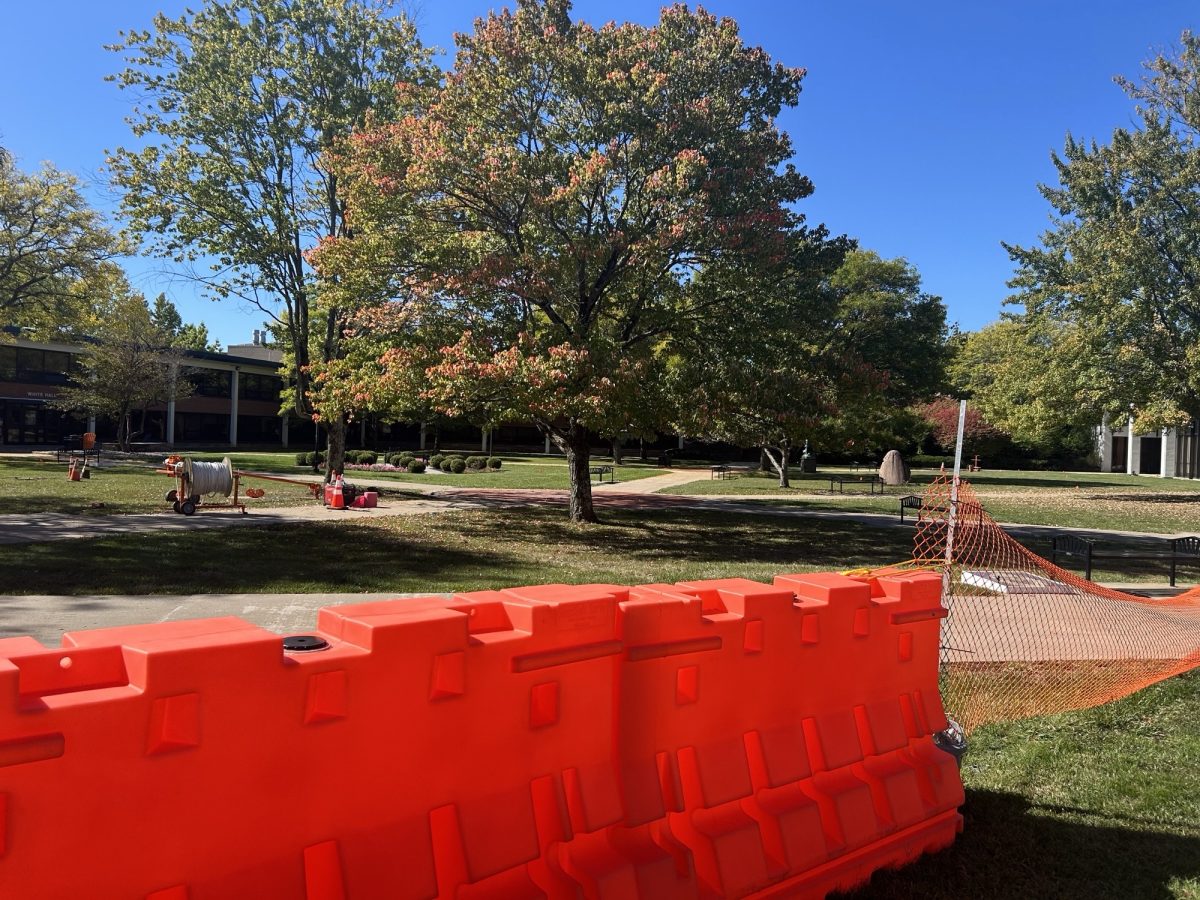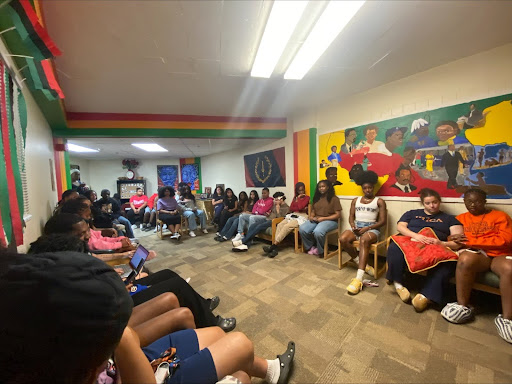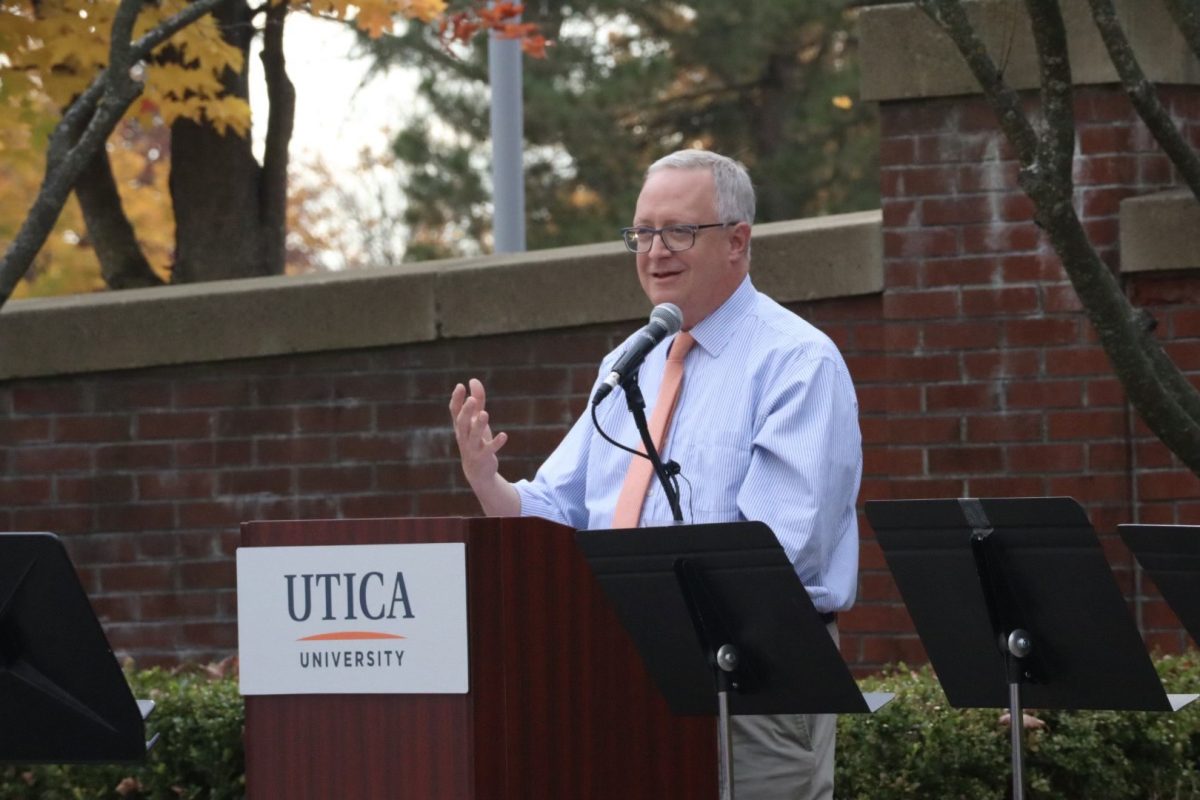Could lab-grown meat be the future of food? Two philosophy professors discussed the ethical, environmental and societal implications of cultured meat on Tuesday, March 25 in the Willard Conference Room in DePerno Hall.
The event, presented by Utica University Applied Ethics Institute, featured Professor Alexandra Plakias of Hamilton College and Professor Leonore Fleming of Utica University. The professors explored whether lab-grown meat could provide a sustainable alternative to traditional farming while addressing concerns about food security, animal welfare and public acceptance.
Fleming framed her presentation around the “Billy Roll Principle,” drawing on the philosophy of Albert Camus, who discussed the concept of art and creation. Fleming suggested that cultured meat represents a new form of creation, one that involves “dangerous creation” and “taking risks in pursuit of freedom.”
The concept of cultured meat involves growing meat from animal cells in a lab, rather than slaughtering animals. Fleming explained how difficult this process is, requiring scientists to isolate cells without contamination, arrange them on a scaffold and provide the right food and conditions for the cells to grow.
More than $3 million was invested between 2016 and 2022, with more than 150 companies involved. However, no commercially available cultured meat product exists.
“The reason that the investors were really interested in cultured meat was because of the environmental effects of traditional meat,” Fleming said. “The co-founder of Google, Leonardo DiCaprio, other celebrities, they all kind of jumped on the cultured meat bandwagon.”
To illustrate the cultural impact of food innovations, Fleming explained the “Billy Roll Principle” referred to “Billy the Smiling Sausage,” a processed meat product created in 1986 after a technological breakthrough allowed for a face to be imprinted onto slices of meat. She emphasized that food innovation is often influenced by historical and cultural contexts. Camus’ concept that “there is no culture without legacy” suggests that lab-grown meat is part of a broader legacy of cultural and technological progress.
Fleming also highlighted the role of artificial intelligence in advancing cultured meat. Researchers at New Harvest are applying reinforcement learning to optimize cell growth conditions while minimizing costs. She said this trial-and-error approach aligns with philosopher Karl Popper’s theory of falsifiability, which emphasizes the importance of meaningful failure in scientific progress.
Plakias considered a different angle, discussing the role of philosophers in addressing injustices in the food system. She referred to Paul Thompson’s work on food ethics and explained how philosophers analyze lab-grown meat through ethical, metaphysical and epistemic critiques.
Plakias questioned the metaphysical critique of lab-grown meat, asking, “Even if lab-grown meat wasn’t really meat, why is that bad?” She suggested that the definition of meat is always evolving and that the question should focus more on whether lab-grown meat offers an ethical solution to animal suffering.
Plakias said lab-grown meat could reduce animal suffering while allowing consumers to make more informed and autonomous decisions about their food.
“And what I mean by autonomous is just like self-directed, like we can decide what’s important to us and choose our food accordingly,” Plakias said.
Plakias discussed the role of disgust or “the yuck factor” in people’s reactions to lab-grown meat. She gave an example of people who have “neophobia,” a fear of unfamiliar things and trying new foods, which makes people hesitant to accept lab-grown meat.
She reflected on how new foods gain acceptance, pointing to sushi as an example. When sushi first came to the U.S., people were skeptical but it became popular because “it was really different, and maybe a little like, dangerous and like, cool and edgy.” She questioned whether lab-grown meat could follow a similar path, pointing out that it promotes sustainability without changing eating habits.
For some students, the event was their first exposure to the topic. Junior Amberly Len attended the talk because it was held during her class with Fleming. “I honestly have no idea what cultured meat is, but I want to learn about it,” she said.
Senior Megan Brinck, who identifies as mostly vegetarian, said she had not heard of lab-grown meat before but would consider trying it. Her main concern was its ingredients, worrying about bad chemicals or preservatives.
“I think this could change the meat industry in good and bad ways,” she said. “Cows produce greenhouse gases which could be eliminated with this lab-grown meat, but also some people’s livelihoods depend on meat production such as farmers.”
As the debate over lab-grown meat continues, the event highlighted the challenges of new technologies, ethical issues and societal acceptance. It remains uncertain whether cultured meat will become a real option or simply an idea that has yet to be seen.










































































































































